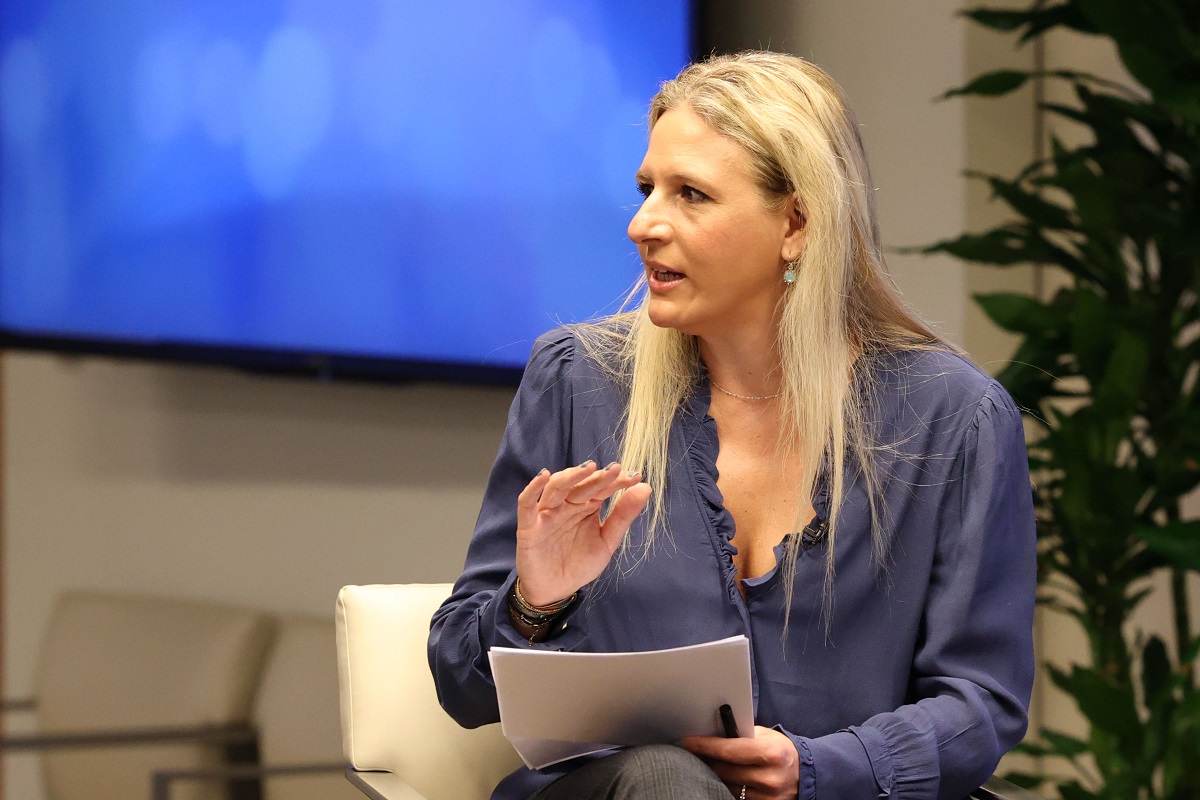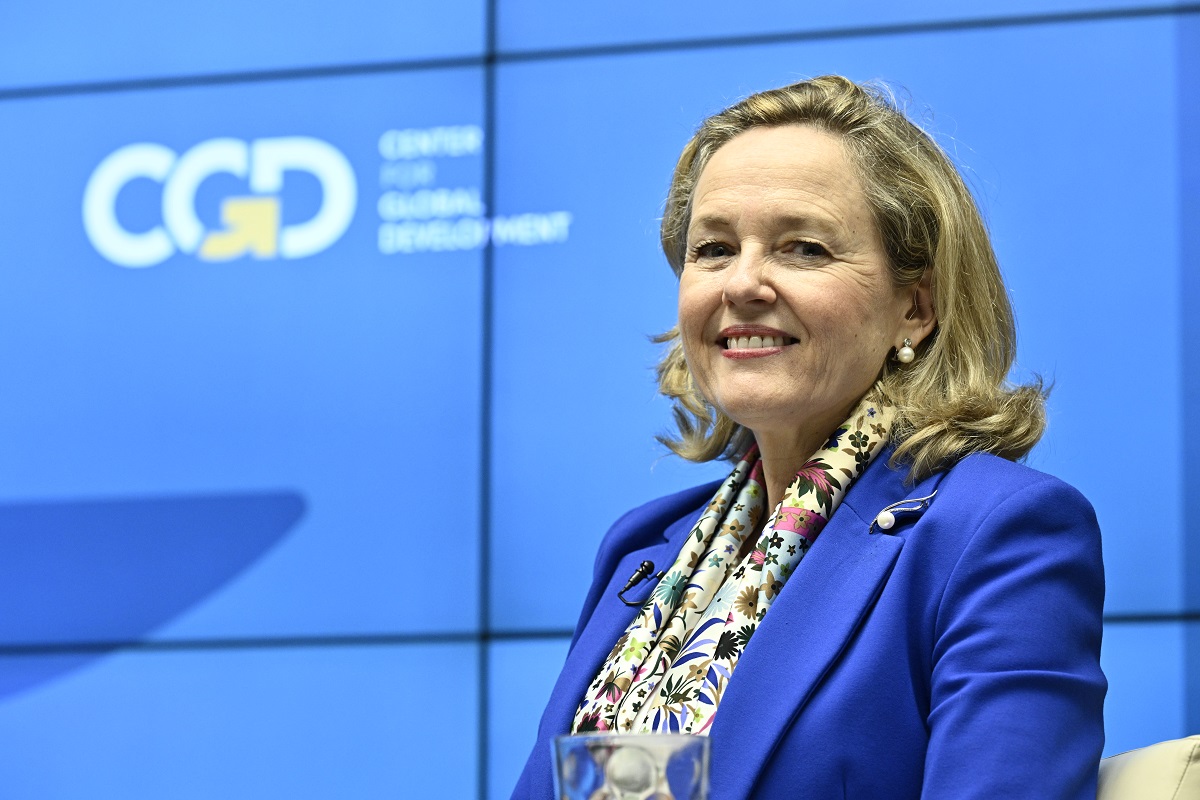Last week, leaders from around the world gathered in Washington, DC to discuss the global economic situation, a looming debt crisis, and the future of the international financial institutions. CGD convened almost a dozen conversations on the sidelines of the meetings on everything from climate finance to special drawing rights, and CGD's experts were in the thick of the discussions around Washington. Here are some of their takeaways on the highs and lows.
Far too little progress in giving developing countries what they want and need
The World Bank's updated evolution roadmap for presentation to its governors at the Spring Meetings gave a good indication of what was to follow. The manifesto for a new era of global climate and development finance it was not. There was some more detail on stretching capital matched by the warning that too much more than a minimal stretch would raise borrowing costs. There were zero details on how (and how large) a capital increase would help deliver on development or climate goals, or how concessional funds would be effectively used in support, or a broader reform of the World Bank’s lending practices. Worrying statements about IDA's financing capacity in FY24/25 came with no more than nods towards partial fixes. (Kudos for quick(er) publication of the draft, though.) Sure enough, what we got matched those low expectations: a revision of IBRD’s minimum equity-to-loan ratio by one percentage point and a hybrid capital pilot. Hardly enough to get the blood racing—barely enough to justify the emissions impact of all of the flights to the meetings. The week ended with a strong piece by three of the World Bank’s executive directors that laid out a client agenda for reform, which only demonstrated how great the gap between what developing countries need and what is currently on offer.
—Charles Kenny
Varying optimism on the shift in China’s position on debt relief
There were signs of progress coming from the IMF-hosted Global Sovereign Debt Roundtable last Wednesday. On issues like comparability of treatment, scope of debt restructurings, and timelines, there was a commitment to keep talking, which isn’t exactly progress even if it’s not backsliding. But the most interesting and promising signal relates to China’s stance on multilateral development bank (MDB) participation in debt relief. Whether it represents China backing down or something more complicated, the roundtable clearly produced a change in position from the Chinese. Rather than insisting that the MDBs restructure or take haircuts alongside other creditors, China’s position has now shifted to expecting that MDBs will increase concessional financing (grants and low interest rate loans) on a net basis as part of a debt restructuring agreement.
Those who see this as China backing down say this is exactly what the MDBs already do. But I think it’s more complicated than that, and in turn, I think the Chinese have pivoted to an ask that will test the will of MDBs and MDB donors in interesting ways. Both Zambia and Sri Lanka point to the challenges here. Under existing MDB rules, neither is currently eligible for grant financing, nor would they be as part of a debt restructuring. Sri Lanka isn’t even eligible for concessional loans. Changing the rules to accommodate these two countries (and thereby open the door to similarly situated countries going forward) implies more strain on MDB resources when concessional financing at the MDBs is already under stress.
That said, I do think all of this represents progress by moving toward a consensus approach and away from the geopolitical charges and countercharges that have threatened to disrupt the “multilateral” in multilateral development banks. For more on that, and how one might think about constructive bargaining between the US and China rather than destructive provocations, see my new piece in the Oxford Review of Economic Policy, “Development finance cooperation amidst great power competition: what role for the World Bank?”
—Scott Morris
It’s hard to point to a major policy breakthrough at the Spring Meetings, but one relative bright spot could be on debt, where China is reportedly dropping their ask that MDBs join in debt restructurings as a precondition for their own participation. The press statement from the Global Sovereign Debt Roundtable co-chair is tantalizingly light on details. But some reporting suggests that it could entail MDBs providing fresh concessional and/or grant lending for Common Framework countries. It’s probably fair to guess that the actual specifics have yet to be fully fleshed out. But if the ask is for MDBs to go above and beyond existing country allocation envelopes, the financial implications would be significant. IDA’s current resources are already so heavily stretched that they may not be able to meet existing financing levels in the coming years—much less surpass these levels—without some additional donor support over the next year. So the question of who will pay will need to be resolved. And if that’s the question we are left with, this may not look like such a breakthrough in the end.
—Clemence Landers
Can the European Investment Bank maintain momentum on climate in the face of a polycrisis?
The war in Ukraine and related inflationary pressures, economic recessions, food and energy crises, and debt concerns mean donor country budgets, particularly in Europe, are facing conflicting pressures—just as developing countries’ financial needs spiral. In the face of this polycrisis, a focus on a “twin transition” is difficult to maintain. The MDBs have a big role to play in this, but concrete action is failing to materialise. The European Investment Bank (EIB) has been a leader in this area, announcing in 2019 that it would no longer be lending for unabated fossil fuel energy projects. By 2022 more than 50 percent of its lending was for climate projects and by 2030, it expects at least one trillion dollars of lending for climate. As one of the world’s main financers of climate action, the EIB’s direction could lead the way for other banks facing these same questions. But Europe has been accused of hypocrisy in warning African countries against developing fossil fuels and natural gas reserves while also eyeing such investments in response to the energy crisis in Europe. And climate action without a just transition simply will not fly. While lending volumes are important, the MDBs need to recognise that success should be measured on the basis of impact.
A recording of CGD’s recent event featuring Werner Hoyer, EIB President, and Maria Shaw-Barragan, EIB Global’s Director of Lending for Africa, Caribbean, Pacific, Asia and Latin America, is available here.
—Mikaela Gavas
A welcome update to the World Bank’s gender strategy
The World Bank is updating its gender strategy. The update has a welcome focus on the gendered impacts of shocks stemming from climate change, humanitarian crises, and pandemics—and recognizes the role of innovative financing in nudging countries to adopt policies that promote gender equality across sectors. Social protection—including cash transfers, social insurance, child and elderly care, pensions, and paid parental and disability leave—will be a critical component of promoting resilience to such shocks.
The strategy update is also quite progressive. I personally welcome the explicit recognition that the male/female binary ignores the continuum of genders as well of the intersectionality among gender, ethnicity, and race in deprivations. However, I am wary of the outsize engagement with the intent to change social norms. Restrictive patriarchal norms indeed mediate the impacts of many interventions, including safety nets, but norms are difficult to change and attempts can even backfire. I'm curious to see how the World Bank implements the gender strategy update and the social protection strategy—and whether it manages these risks while accomplishing some of the loftier goals.
—Eeshani Kandpal
Slow progress on recycling SDRs to the African Development Bank
The proposal to recycle Special Drawing Rights (SDRs) to the African Development Bank (AfDB) is still alive, but advancing slowly. It was the top recycling choice of a CGD co-hosted panel of Africa development finance experts held before the Spring Meetings. The AfDB is sounding out potential donors. The United Kingdom announced that it would recycle additional SDRs to the IMF’s Poverty Reduction and Growth Trust, dampening hopes that money would go to the AfDB. But officials confirmed that the UK was committed to advancing the AfDB proposal and would work with other high-income countries to put together a coalition of five lenders that could comprise the initial tranche of hybrid capital for the bank.
—Mark Plant
Improving the generation and use of evidence at the World Bank
We were pleased to hear the future World Bank president, Ajay Banga, call for the institution to deepen its role as a knowledge bank in his remarks at a CGD event. IDB President Ilan Goldfajn has elevated the importance of development effectiveness, including at CGD last week. And we similarly heard agreement on the role of evaluation in improving the impact of development policies and programs from representatives of USAID, IDB, Gavi, Norad, and the World Bank at a CGD panel discussion on going beyond the dollars.
The World Bank cannot enhance its impact, much less lead global development policy, without a systematic focus on evidence and evaluation. We hope to see the World Bank’s new president prioritize this agenda as he puts his ambitious plans for the World Bank into action. But doing so will require moving from broad-based commitments to concrete plans for how the institution can more systematically incorporate evidence generation and use across its operational structure, incentives, and decision making. We'll be following this space. Stay tuned for more work, building on CGD’s recent Working Group on New Evidence Tools for Policy Impact and related analysis.
—Janeen Madan Keller, Julia Kaufman, Eeshani Kandpal
Disclaimer
CGD blog posts reflect the views of the authors, drawing on prior research and experience in their areas of expertise. CGD is a nonpartisan, independent organization and does not take institutional positions.
Image credit for social media/web: Ryan Rayburn / World Bank





